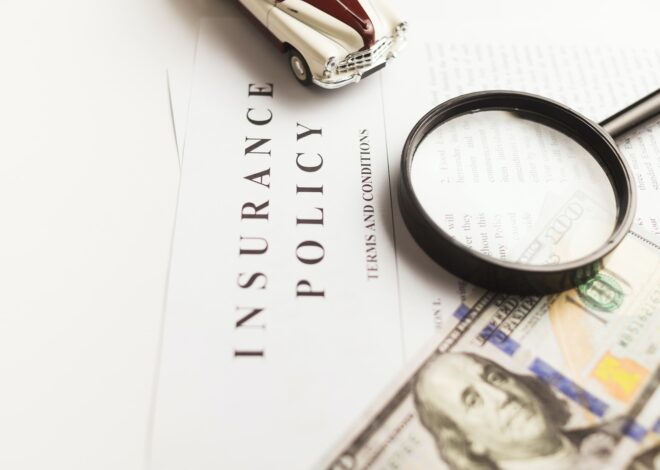
Business Insurance: Safeguarding Your Business Assets
Introduction to Business Insurance
Business insurance is a critical tool that can protect your business from various risks and uncertainties. It’s a safety net that safeguards your business assets and ensures the continuity of your operations.
What is Business Insurance?
Business insurance is a type of coverage designed to protect businesses from potential losses due to unforeseen circumstances. These could include theft, liability, property damage, and interruption of business operations.
Why is it Important?
In the world of business, risks and uncertainties are inevitable. From natural disasters to cyber-attacks, businesses are exposed to a variety of threats. Business insurance provides financial support in such scenarios, helping businesses recover and continue their operations.
The Role of Business Insurance in a Business
Business insurance plays a crucial role in maintaining the financial stability of a business. It covers the costs of potential losses or damages, thus preventing businesses from facing financial hardships. It’s not just about safeguarding assets—it’s about ensuring the survival and growth of the business.
In the following sections, we’ll delve deeper into the different types of business insurance, their importance in asset protection, and how to choose the right one for your needs. We’ll also discuss common mistakes to avoid when buying business insurance, and how it plays a role in future-proofing your business. Stay tuned!

Understanding Different Types of Business Insurance
There are several types of business insurance, each designed to protect different aspects of your business. Understanding these types can help you choose the right coverage for your business needs.
General Liability Insurance
General liability insurance protects your business from financial loss resulting from claims of injury or damage caused to others by your business operations or products.
Property Insurance
Property insurance covers damage to business property and assets, including buildings, equipment, inventory, and furniture. It can protect your business from incidents like fire, theft, and natural disasters.
Workers’ Compensation Insurance
Workers’ compensation insurance provides wage replacement and medical benefits to employees injured in the course of employment. It’s a critical coverage that protects both the employee and the business.
Professional Liability Insurance
Also known as Errors and Omissions (E&O) insurance, this covers businesses against negligence claims due to harm resulting from mistakes or failure to perform.
Product Liability Insurance
If your business manufactures or sells physical products, product liability insurance can protect you against claims of defects that cause injury or harm.
Business Interruption Insurance
Business interruption insurance compensates for lost income during events that disrupt the normal course of business, such as natural disasters.
Each type of insurance offers different coverage, and the right choice depends on the nature of your business, the risks it faces, and the assets it needs to protect. In the next section, we’ll discuss the importance of business insurance in asset protection.

The Importance of Business Insurance in Asset Protection
Business insurance plays a crucial role in protecting your business assets. It serves as a safety net that can save your business from significant financial losses.
Protecting Physical Assets
Whether it’s the building where your business operates, the equipment you use, or the inventory you sell, these physical assets are vital to your business operations. Property insurance can cover the costs of repairing or replacing these assets if they’re damaged or stolen.
Safeguarding Financial Health
Unexpected events can lead to substantial financial losses. For instance, a lawsuit or a workers’ compensation claim can cost thousands, if not millions, of dollars. Liability insurance can protect your business from such financial burdens.
Ensuring Business Continuity
In the event of a disaster, business interruption insurance can cover lost income and operating expenses, allowing your business to continue operations during difficult times.
Mitigating Legal Risks
In today’s litigious society, a single lawsuit can spell the end for a small business. Professional liability insurance can protect your business from claims of negligence, errors, and omissions.
Enhancing Credibility
Having business insurance also enhances your business’s credibility with your clients and customers. It shows that you’re a safe bet, capable of compensating for any losses or damages incurred when doing business with you.
In conclusion, business insurance is not just an optional extra—it’s a necessary part of doing business. It protects your assets, shields you from liabilities, and ensures the continuity and credibility of your business.
How to Choose the Right Business Insurance for Your Needs
Choosing the right business insurance is a critical decision that can significantly impact your business. Here are some factors to consider:
Understand Your Business Risks
Every business has unique risks. A manufacturing company might be more concerned about workplace accidents, while a consulting firm might worry about professional liability. Understanding your business risks will help you identify the types of insurance you need.
Evaluate Your Business Assets
Take stock of your business assets, including physical assets like buildings and equipment, as well as intangible assets like intellectual property. The value of these assets can guide your decisions about the amount of coverage you need.
Consider Legal and Contractual Obligations
Some types of insurance may be legally required in your area, such as workers’ compensation insurance. Additionally, clients or landlords may require certain types of coverage. Be sure to understand these obligations when choosing insurance.
Consult with an Insurance Professional
Insurance can be complex, and each business’s needs are unique. An insurance professional can provide personalized advice and help you navigate the process.
Regularly Review and Update Your Coverage
As your business grows and changes, your insurance needs will likely change as well. Regularly reviewing and updating your coverage can ensure that your business remains adequately protected.
Remember, the goal of business insurance is to safeguard your business assets and protect your business from potential risks. Therefore, it’s crucial to choose the right business insurance that meets your specific needs.
Common Mistakes to Avoid When Buying Business Insurance
When it comes to purchasing business insurance, it’s crucial to avoid certain common mistakes that could potentially harm your business. Here are some of the most common pitfalls:
Not Understanding Your Coverage
One of the most common mistakes businesses make is not fully understanding the coverage they are purchasing. It’s essential to read and understand the terms and conditions of your policy, including what is covered, what is excluded, and the limits of the coverage.
Underinsuring Your Business
Underinsuring your business can lead to significant financial losses if a disaster or lawsuit occurs. It’s important to accurately assess the value of your business assets and potential liabilities to ensure you have adequate coverage.
Neglecting Business Interruption Insurance
Many businesses overlook the importance of business interruption insurance, which covers loss of income in the event that your business is unable to operate due to a covered loss. This can be a lifeline for businesses following a disaster.
Not Regularly Reviewing Your Policy
Business needs change over time, and so should your insurance coverage. Regularly reviewing your policy ensures that your coverage keeps pace with the changes in your business.
Choosing Price Over Coverage
While it’s important to consider cost, choosing a policy based solely on price can lead to inadequate coverage. It’s crucial to balance the cost of the policy with the coverage it provides.
By avoiding these common mistakes, you can ensure that your business is adequately protected and that your insurance policy meets your specific business needs.
Conclusion: The Role of Business Insurance in Future-Proofing Your Business
In the ever-evolving business landscape, future-proofing your business is not just a strategy, but a necessity. One of the key components of this process is having the right business insurance in place.
Business insurance plays a pivotal role in safeguarding your business assets and ensuring the continuity of your operations. It provides a financial safety net that can help your business weather unforeseen circumstances, from natural disasters to legal disputes.
Moreover, business insurance is not just about mitigating risks and losses. It’s also about seizing opportunities. With the right coverage, businesses can take calculated risks that drive growth and innovation, secure in the knowledge that they are protected against potential downsides.
In essence, business insurance is an investment in your business’s future. It provides the peace of mind that allows you to focus on what you do best: running your business and steering it towards long-term success.
Remember, the future is not something that just happens to us. It’s something we can actively shape and prepare for. And business insurance is one of the most powerful tools we have in our arsenal to do just that. So, make sure your business is future-ready with the right business insurance. Your future self will thank you.









You’ve the most impressive websites.